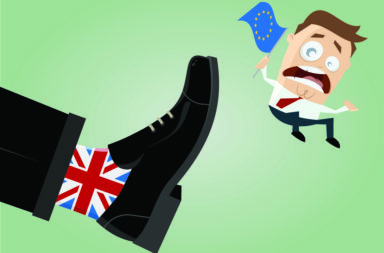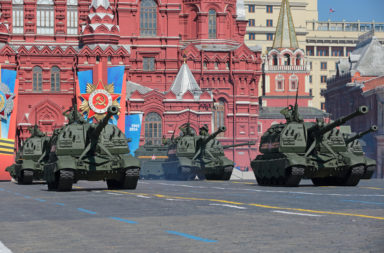Before 2014, the world lived quite peaceful times. It did not require much from brands to step out and to analyse world politics. The current climate however, is quite challenging, and many brands must understand world politics. Therefore, many brands must have their own foreign policies as a part of their risk management processes.
The world is currently living uneasy times. This sort of image can be received from covered news stories and on social media. Extremist forces are on the rise, and they are polarising the political life. However, vast majorities are usually silent, and extremist forces are typically micro forces in various societies but they do receive attention – maybe too much.
Russia’s aggressive behaviour, Donald Trump’s presidency (Muslim travel ban and ditching Paris climate accord), UK’s Brexit vote, the presidential election in France and many other events have spurned brands to express their political opinions. Some business leaders have always been active when it comes to political issues, but there are now more brands expressing their views and they are more active than ever before. What is the reason behind this sort of behaviour?
Consumers nowadays are more conscious of politics and world affairs. They expect their brands to standout and to defend their core values. Richard Branson’s Virgin was a strong supporter of the Bremain campaign in the United Kingdom because he wanted Britain to stay in the single market. Vogue Magazine took a historical step by supporting Hillary Clinton during the presidential campaign. LVMH’s owner Bernard Arnault supported presidential candidate Emmanuel Macron.
Typically brands have kept deep silences over current political affairs. They may have lobbied for some issues in different parliaments but currently many brands are feeling that some policies might hurt their values, hence, their stakeholders. The fashion industry is a strong supporter of human rights and it promotes tolerance. Therefore, Vogue’s and LVMH’s worry could be understood. These types of brands are not only participating in domestic policies, but they are also communicating to their international stakeholder groups that they have their own independent political lines in order to avoid any misunderstandings abroad.
Russian business life is a good example, which has received lots of hits after 2014. Foreign investors are less interested of the country. Some companies have abandoned the country. Existing companies predict negative scenarios for the future. In turn they have suspended their expansion plans, and are experiencing poor sales. Lots of domestic and foreign professionals have left the country, and more are leaving. Gazprom’s gas pipeline projects and Rosatom’s nuclear projects are receiving resistance in European countries. This is the reason why brands should have their own foreign policies. Hence, to leave a market, which does not support their core values. Also, some businesses can be affected negatively by their own country’s foreign policy.
The business world typically wants to promote peace because predictable markets are good for business and profits. We are also living in a hyper-connected world, which means that value chains are multinational. Interdependence between different countries is a positive issue because the business world typically wants to enhance reconciliation rather than confrontation. However, in some cases interdependence can be used for blackmailing from the stronger side. Especially, if the business sector has a strategic importance in security of supply, such as arms, technology, energy, finance, food and many others.
However, there are different ways to practice corporate foreign policy, which are:
- Power balance brands are mainly in arms and tech industries because they have the power to influence power balances. These brands and industries are typically regulated by their own governments and international institutions like the European Union.
- Value brands are typically strong supporters of democratic values and individual rights. They are well aware that their stakeholders share same sort of values.
- Reconciliation brands are willing to take investment risks to hostile countries. Their objective is to enhance reconciliation but they have not abandoned their values but they bring their values forward in different ways in different countries.
- Non-partisan brands represent the vast majority of brands in the business life. They abide regulations and trade barriers. Their main objective is to stay away from politics but this does not mean that they do not have any values because these brands have stated their values in their missions statements.
However, there are two areas which are common with almost every single brand. They do not support extremism within their societies, and they are strong supporters of world peace. Hence, if brands want to have simple guidelines for their corporate foreign policy, they should promote moderate societies and to oppose warmongering because both are good for business and society.





